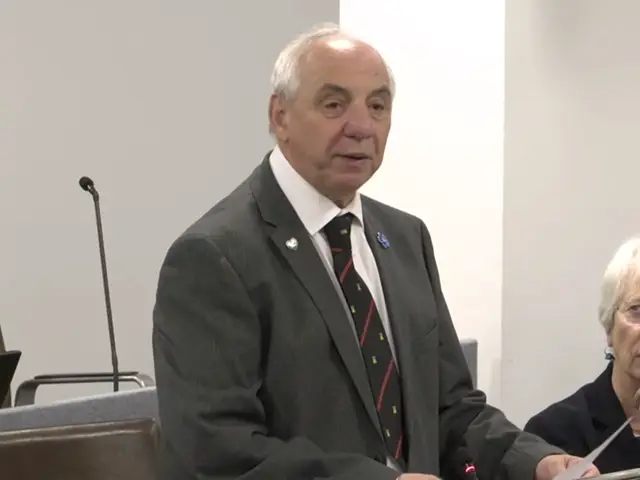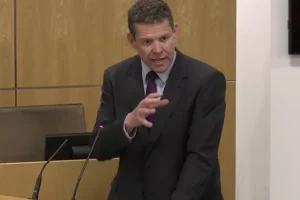WELSH Government bigwigs obstructed an inquiry into public appointments then failed to accept a single one of its recommendations, a watchdog committee warned.
Mike Hedges likened the Senedd’s public accounts committee inquiry to an episode of political satire sitcom Yes Minister, only “without the humour but with the obfuscation”.
Mr Hedges, a Labour member of the committee, was critical of senior civil servants in the Welsh Government following the two-and-a-half year inquiry which found serious failings.
He said: “We met with senior government civil servants who were at best unhelpful or – in my view and possibly that of other members of the committee – positively obstructive.”
During a debate on the committee’s damning reports – which made 23 recommendations – Mr Hedges said he was annoyed and disappointed by the Welsh Government’s response.

He said: “I, like other members, consider the response disgraceful to an inquiry about public appointments, showing disrespect bordering on contempt – not just for those of us who are members of that committee but for the Senedd itself.”
He told the Senedd: “Scrutiny means trying to make things better. It’s very difficult to try and make things better when you’re dealing with people who don’t want to.”
The Swansea East Senedd Member said the most affluent areas have a far higher proportion of government appointments than poorer ones.
Mr Hedges warned: “What happens next? The report is noted and the government response is noted and it gets forgotten – and things continue as usual.
“Or, and this is what I’m asking for, an external public inquiry into public appointments is held as a matter of urgency.”
Mark Isherwood, the Conservative chair of the committee, accused the Welsh Government of undermining scrutiny by failing to clearly accept nor reject any of the recommendations.
He said: “We heard troubling evidence about the lack of diversity in its public appointments on the basis of ethnicity, disability, age, gender, and sexual identity.
“Furthermore, it’s clear that public appointments are not representative of all Wales on the basis of non-protected characteristics – with far too many appointments clustered in and around Cardiff and the south-east.”

Pledging to pursue the issue, Mr Isherwood urged the Welsh Government to urgently reflect and provide a revised response “given the dangerous precedent it could set”.
In closing, he said: “I urge the Welsh Government to now engage seriously with our recommendations and address a system that at present is not fit for purpose.”
Plaid Cymru’s Peredur Owen Griffiths told the Senedd: “At a time when public confidence in our institutions is lower than ever, often for valid reasons, it’s vital that high standards are maintained in terms of public appointments.”
Warning of complacency, he said: “The conclusions of the report are extremely critical…. Worse still, the government’s weak responses to the committee’s recommendations undermine any belief that it will learn any lessons… and this is part of a wider pattern.”

Mr Owen Griffiths expressed concerns about almost a quarter of appointees in Wales in 2020/21 having declared political activity, compared with less than 6% in Westminster.
He called for a dedicated public appointments system as in Scotland and Northern Ireland, where country-specific arrangements exist.
The Conservatives’ Janet Finch-Saunders criticised a lack of data on key issues, including Welsh speakers on public boards and the percentage of appointees who live outside Wales.
“The overall theme… is one of deep concern over a lack of transparency,” she said.
Her Tory colleague James Evans called for the Senedd’s pre-appointment hearings with candidates, which are “a little bit dressed up” as accountability, to have more teeth. “What we’re doing isn’t oversight, it’s a piece of theatre,” he said.
He accused ministers of reversing moves to strengthen scrutiny, preferring to rely on internal methods that have “repeatedly failed” and “inappropriately” hand-picking people for roles.
Jane Hutt responded to the June 25 debate for the Welsh Government: “It is regrettable that historic delivery in this area has fallen short of expectation. That’s why I’ve asked for and we are delivering a root-and-branch reform programme.”

The Labour minister pointed to data, which had not been interrogated by the committee, showing “encouraging” progress on ensuring appointments are truly reflective of Wales.
“The direction is clear,” she said. “We’re taking action. We’re listening. We are improving.”














